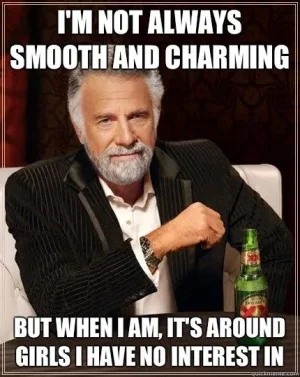D
Deleted member 16771
Cool!Call it Ci versus Ce
I've been tagged a lot here, and I just want to say that a quality like 'charisma' can also harm you. Anything exceptional is suspicious, and the whole 'narcissist' narrative has 'charisma' under the spotlight, too, since one of the checklist characteristics of NPD is 'superficial charm'.
I think it's easy to discern the difference between 'superficial' charm and when somebody is communicating something of substance, but even so the link has been made and dispelling it seems futile.
There is also the fact that 'charisma' means that attention comes to you, which raises another suspicion: that you're doing it deliberately; that you're 'courting attention'.
I was wary of engaging with this thread for this reason. This label can harm you. Anything which exceptionalises or differentiates you from others can harm you eventually. Deeply, and there's nothing you can do about it. It cultivates the instinct of wanting to melt away into the background; not be noticed or paid any attention to whatsoever.
So these tags... and having my charisma 'scored', it hurts me, even if the intent is good and I try to accept it as a compliment. I want connection and acceptance, not to be objectified in this way.
Anybody can be charismatic. Everybody has the power to take a stand or speak their truth, and I always encourage this. It's not about 'charismatic individuals', as if we're looking at a different species, but a skillset that can be used by anyone for either good or bad.


